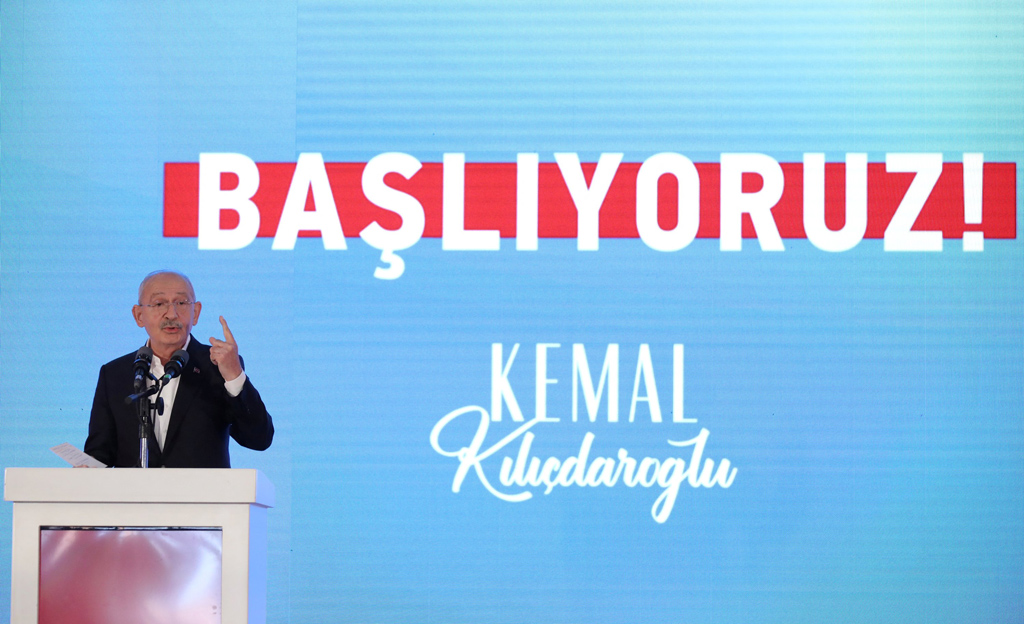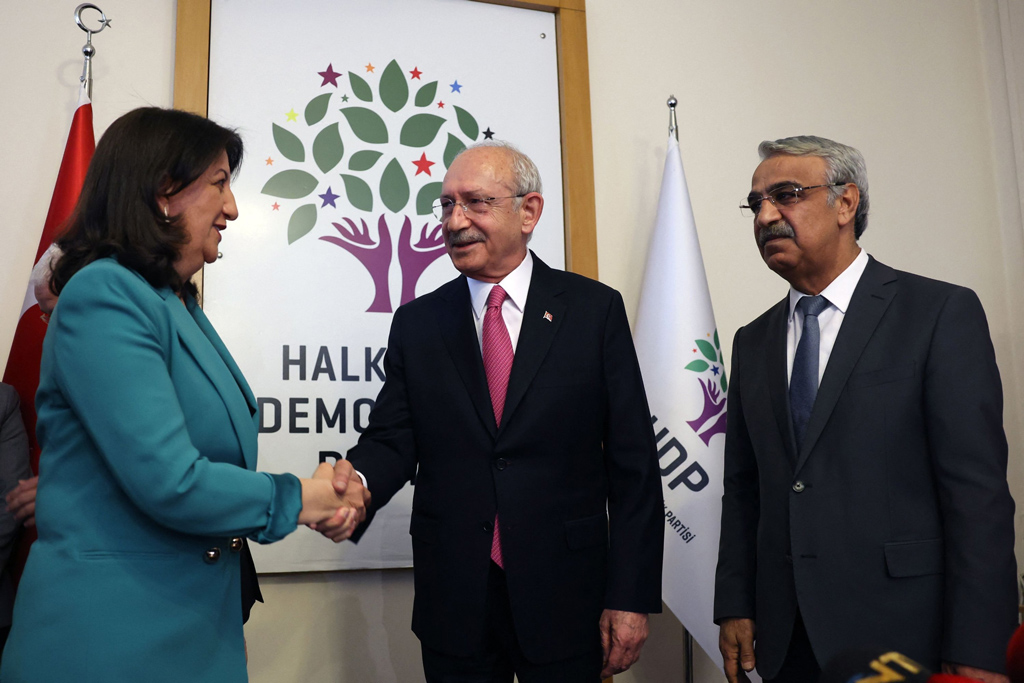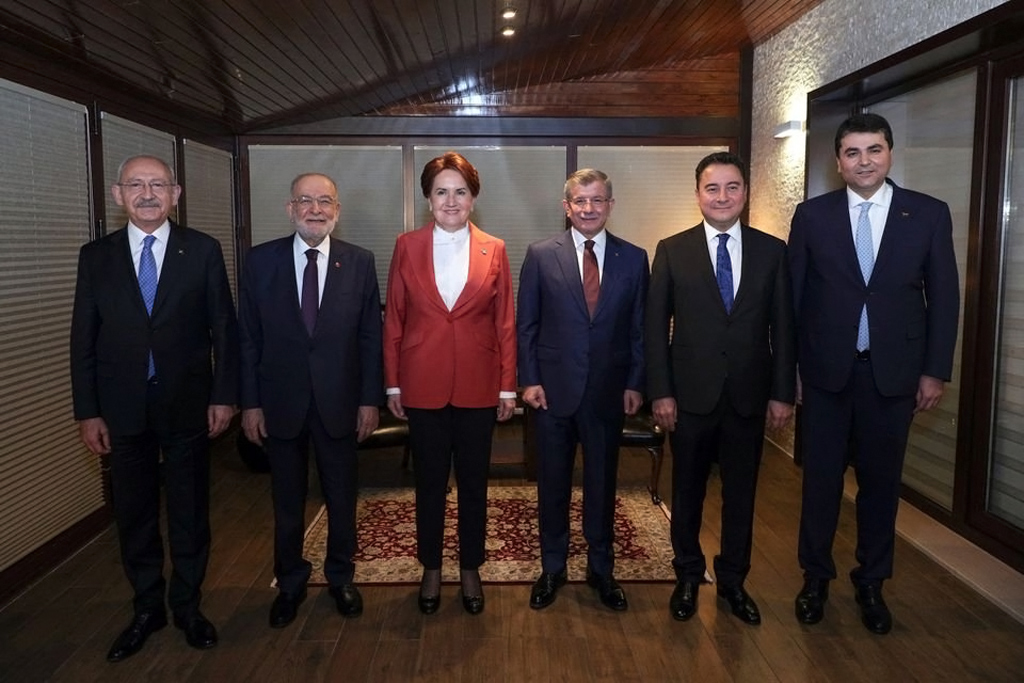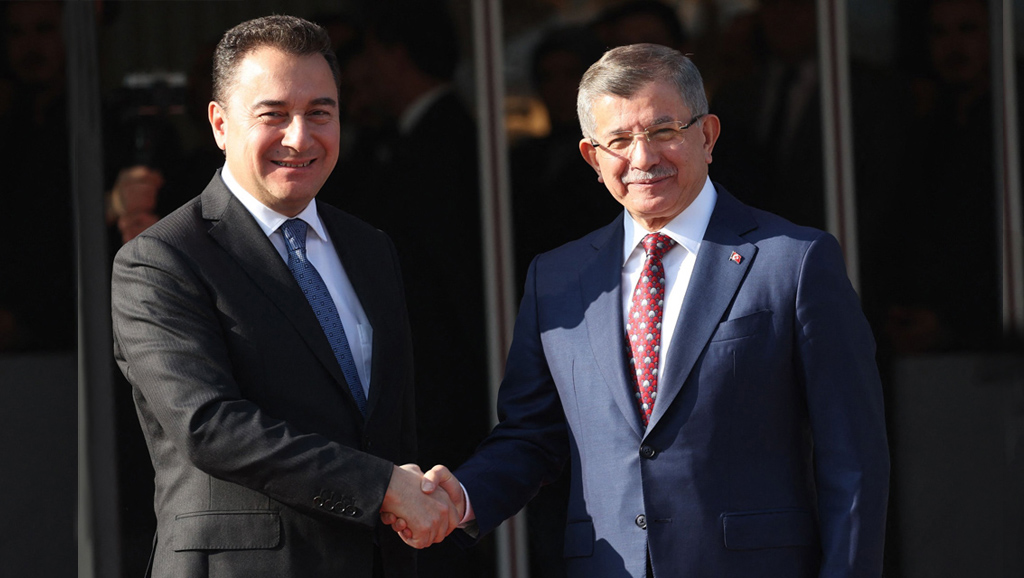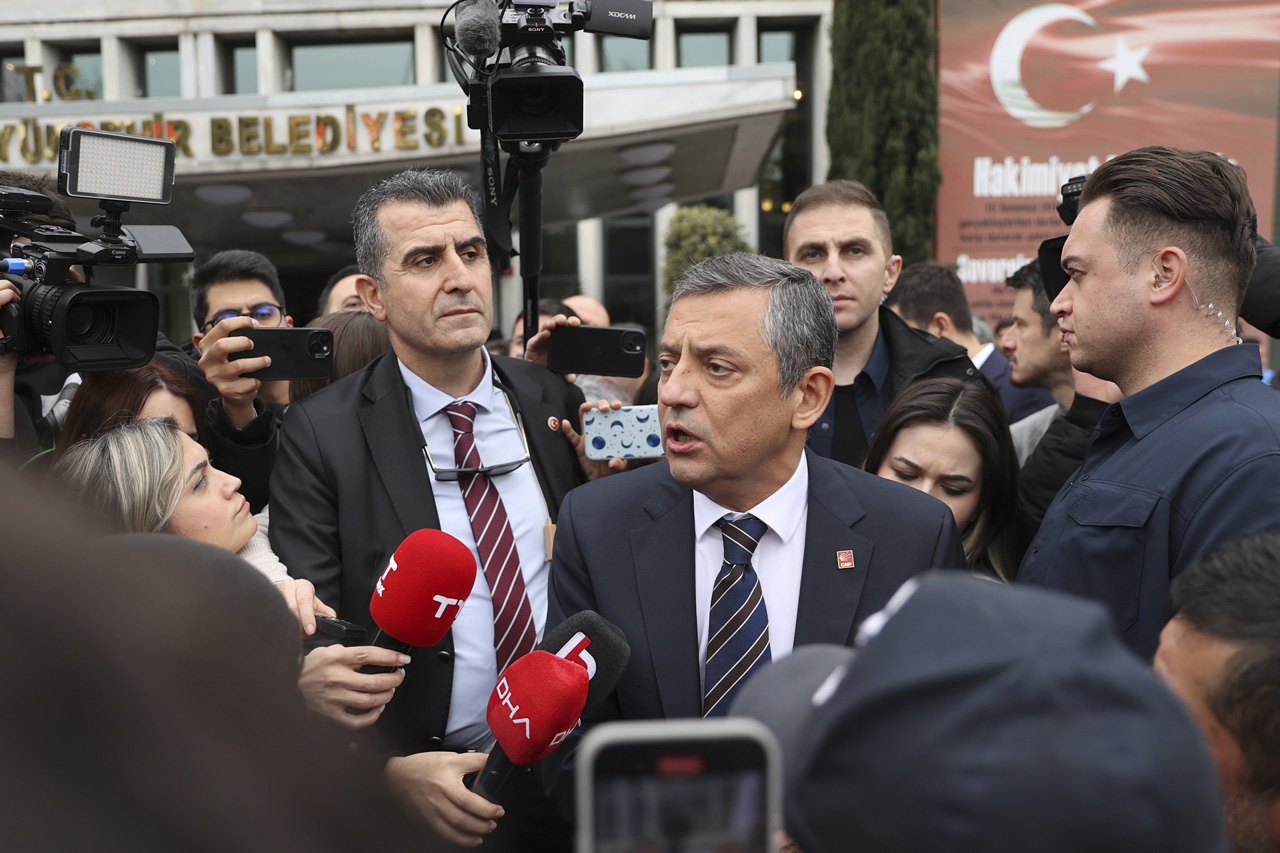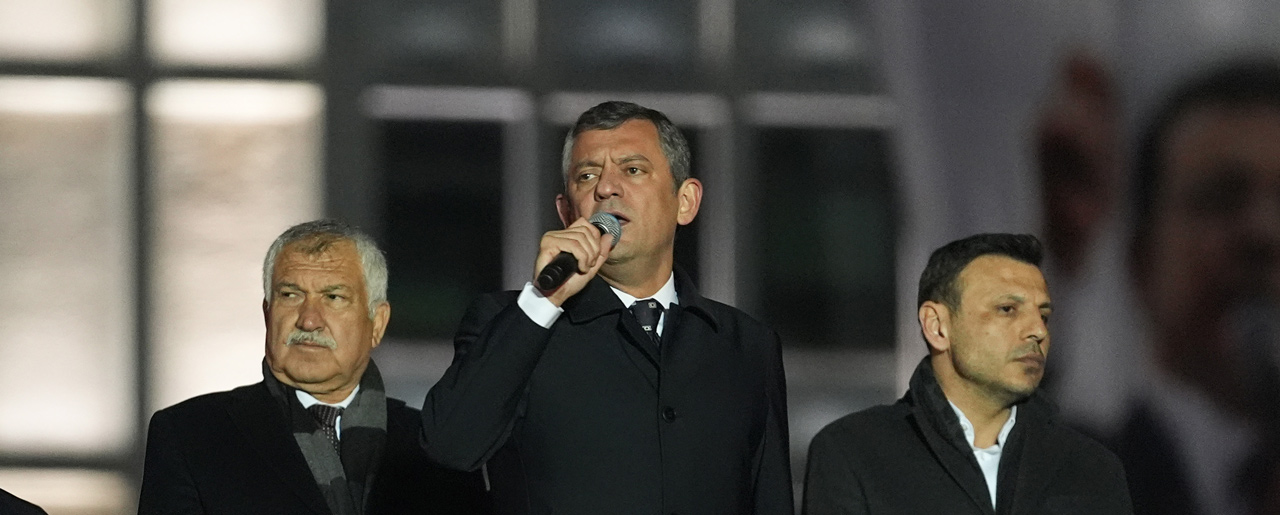As Türkiye’s political parties put the final touches on their parliamentary candidate lists, presidential contenders are expected to focus on campaign events after the holidays. At the same time, political debates, rhetorical battles and shows have been getting more intense.
Just as the outrage over Kemal Kılıçdaroğlu, the head of the main opposition’s Republican People's Party (CHP) and the joint candidate of the six-party opposition bloc Nation Alliance, also known as "table for six,"
stepping on a prayer rug with his shoes was beginning to fade, Good Party (IP) Chair Meral Akşener put on a memorable political show by throwing around
bullets during an address to her party’s parliamentary caucus on Wednesday.
Meanwhile, Sırrı Sakık, a former deputy of the pro-PKK Peoples' Democratic Party (HDP), called on Kılıçdaroğlu to tell the people “
what was discussed behind closed doors.” He added that his party would call for a “general amnesty” in the next term and grant “freedom” to everyone, including PKK founder Abdullah Öcalan.
Just before this piece went to print, Ahmet Davutoğlu, the Future Party's (GP) chairperson, warned: “There will be a lack of a third group in Parliament at this rate. The vast majority of the Nation Alliance’s 300 deputies will be part of the left-secularist wing. The second largest group will be nationalists. There would be a lack of balance if the conservative wing would be represented with fewer people.”
Ongoing crisis at 'table'
Those three developments actually reflect ongoing crises within Kılıçdaroğlu’s coalition. The main problem is linked to the fact that the nationalists, conservatives and leftists within the "table for six" simply cannot agree on what the republic should look like in its second century. Rooted in anti-Erdoğanism, that coalition represents a stillborn reconciliation plan despite some academics singing its praises and calling it a “historic social contract.” The party leaders may have come together, but the mutually contradicting demands of their movements remain in place at the grassroots level.
Akşener’s frustration reflects her party’s dual loss. By now, the IP lost some of its conservative-nationalist supporters for endorsing Kılıçdaroğlu. On election day, the Republican People’s Party (CHP) will lure away some right-wing secularists from the IP mainly because its chairperson will be running for president. It is that sense of helplessness that leads Akşener to insult President Recep Tayyip Erdoğan in public speeches and throw around bullets in Parliament. The truth is that the IP has been reduced to the third most important party, after the HDP, at Kılıçdaroğlu’s "table." Meanwhile, some IP voters turning to
Muharrem Ince and his Homeland Party (MP) highlights the difficulty of the opposition bloc’s nationalists overcoming the current crisis.
At the same time, the PKK terrorist organization and the HDP intend to make their ideological and political ambitions clear on May 14. Kılıçdaroğlu, who recently received the PKK command’s endorsement, was recently challenged by the HDP’s Sakık to “make public what was discussed behind closed doors.” Obviously, the HDP’s efforts to make public its demands would enable the left to set the Nation Alliance’s agenda with greater ease. For the record, their goal of “overhauling” the system is not limited to the legacy of the Justice and Development Party's (AK Party) 21-year rule. Instead, they refer to rebuilding the republic from scratch on the basis of “two founding peoples.”
The conservatives, in turn, ended up being the weakest members of the opposition bloc. The Democracy and Progress Party (DEVA) does not identify as a conservative party, to begin with, but the Felicity Party (SP) and the GP cannot throw conservatism into the coalition’s political and ideological mix either. Ignore Kılıçdaroğlu’s ability to bring some conservatives to his "table." If the opposition were to win, the left – the CHP and HDP – would raise its voice at the expense of the rest. If that time comes, the conservatives will have nothing to do but complain that “this wasn’t our deal” and mourn the failure of their plan to “bring together three currents.”
[Daily Sabah, April 8 2023]
